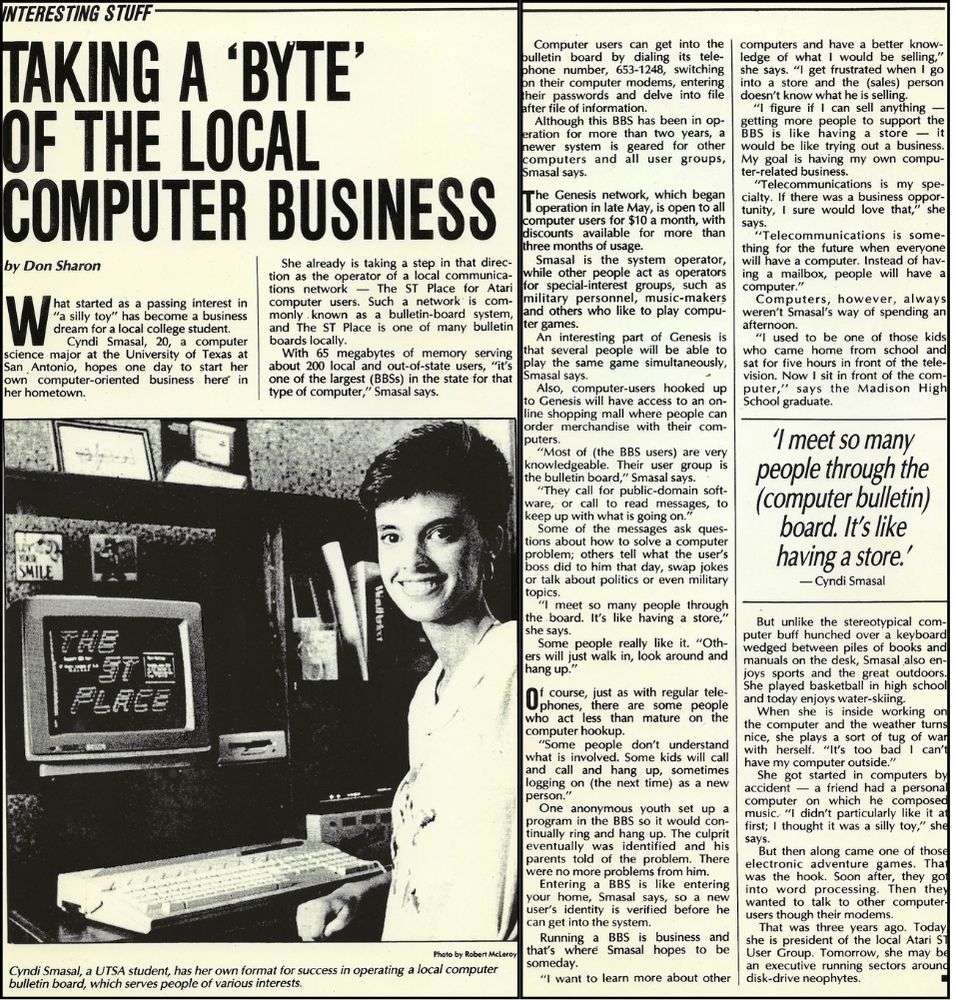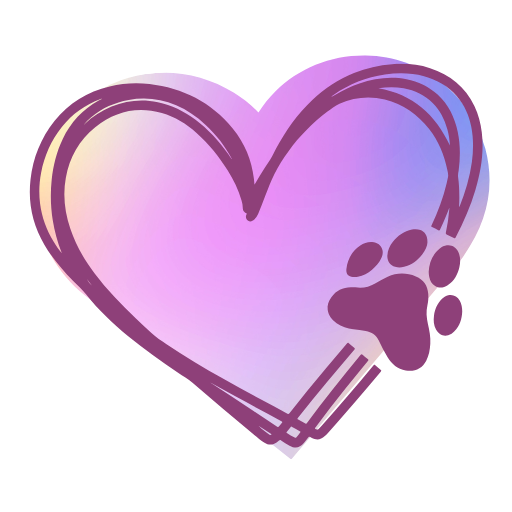
In 1989, I was featured in an article that captured the early days of my journey in the computer world. As I look back, it’s incredible to see how far we’ve come. Here’s a throwback to where it all began.
Here are a few things that I found interesting:
- I had a 65 megabyte hard drive, that was huge back then. Most people only had 1 megabyte disk drives. Compared to 64 gigabyte thumb drive and 500 gigabyte hard drive today.
- I charged a subscription fee
- My BBS was a way to meet people and had groups like social media today
- I wanted to sell products on my BBS like an online shopping mall. Can you see early Amazon.
- I saw a future of everyone having a computer and checking email.
- I wanted to use my computer outside.
INTERESTING STUFF
TAKING A BYTE’ OF THE LOCAL COMPUTER BUSINESS
by Don Sharon
Photo by Robert McLeroy
What started as a passing interest in “a silly toy” has become a business dream for a local college student.
Cyndi Smasal, 20, a computer science major at the University of Texas at San Antonio, hopes one day to start her own computer-oriented business here in her hometown.
She already is taking a step in that direction as the operator of a local communications network — The ST Place for Atari computer users. Such a network is commonly known as a bulletin-board system, and The ST Place is one of many bulletin boards locally.
With 65 megabytes of memory serving about 200 local and out-of-state users, “it’s one of the largest (BBSs) in the state for that type of computer,” Smasal says.
Cyndi Smasal, a UTSA student, has her own format for success in operating a local computer bulletin board, which serves people of various interests.
Computer users can get into the bulletin board by dialing its telephone number, 653-1248, switching on their computer modems, entering their passwords and delve into file after file of information.
Although this BBS has been in operation for more than two years, a newer system is geared for other computers and all user groups, Smasal says.
The Genesis network, which began operation in late May, is open to all computer users for $10 a month, with discounts available for more than three months of usage.
Smasal is the system operator, while other people act as operators for special-interest groups, such as military personnel, music-makers and others who like to play computer games.
An interesting part of Genesis is that several people will be able to play the same game simultaneously, Smasal says.
Also, computer users hooked up to Genesis will have access to an online shopping mall where people can order merchandise with their computers.
“Most of (the BBS users) are very knowledgeable. Their user group is the bulletin board,” Smasal says.
“They call for [download] public-domain software, or call to read messages, to keep up with what is going on.”
Some of the messages ask questions about how to solve a computer problem; others tell what the user’s boss did to him that day, swap jokes or talk about politics or even military topics.
“I meet so many people through the board. It’s like having a store,” she says.
Some people really like it. “Others will just walk in, look around and hang up.”
Of course, just as with regular telephones, there are some people who act less than mature on the computer hookup.
“Some people don’t understand what is involved. Some kids will call and call and hang up, sometimes logging on (the next time) as a new person.”
One anonymous youth set up a program in the BBS so it would continually ring and hang up. The culprit eventually was identified and his parents told of the problem. There were no more problems from him.
Entering a BBS is like entering your home, Smasal says, so a new user’s identity is verified before he can get into the system.
Running a BBS is business and that’s where Smasal hopes to be someday.
“I want to learn more about other computers and have a better knowledge of what I would be selling,” she says. “I get frustrated when I go into a store and the (sales) person doesn’t know what he is selling.”
“I figure if I can sell anything — getting more people to support the BBS is like having a store — it would be like trying out a business. My goal is having my own computer-related business.”
“Telecommunications is my specialty. If there was a business opportunity, I sure would love that,” she says.
“Telecommunications is something for the future when everyone will have a computer. Instead of having a mailbox, people will have a computer [and email].“
Computers, however, always weren’t Smasal’s way of spending an afternoon.
“I used to be one of those kids who came home from school and sat for five hours in front of the television. Now I sit in front of the computer,” says the Madison High School graduate.
‘I meet so many people through the (computer bulletin) board It’s like having a store.’ — Cyndi Smasal
But unlike the stereotypical computer buff hunched over a keyboard wedged between piles of books and manuals on the desk, Smasal also enjoys sports and the great outdoors. She played basketball in high school and today enjoys water-skiing.
When she is inside working on the computer and the weather turns nice, she plays a sort of tug of war with herself. “It’s too bad I can’t have my computer outside.”
She got started in computers by accident — a friend had a personal computer on which he composed music. “I didn’t particularly like it at first; I thought it was a silly toy,” she says.
But then along came one of those electronic adventure games. That was the hook. Soon after, they got into word processing. Then they wanted to talk to other computer- users through their modems.
That was three years ago. Today, she is president of the local Atari ST User Group. Tomorrow, she may be an executive running sectors around disk-drive neophytes. ■
Reflecting on this article, it’s amazing to see how much has changed in the tech world. I wanted to run a computer business from my computer. I guess you could say I do that now. Just not what I could have ever dreamed of back then.
What are your memories of the early days of computing? Share your memories in the comments below!

